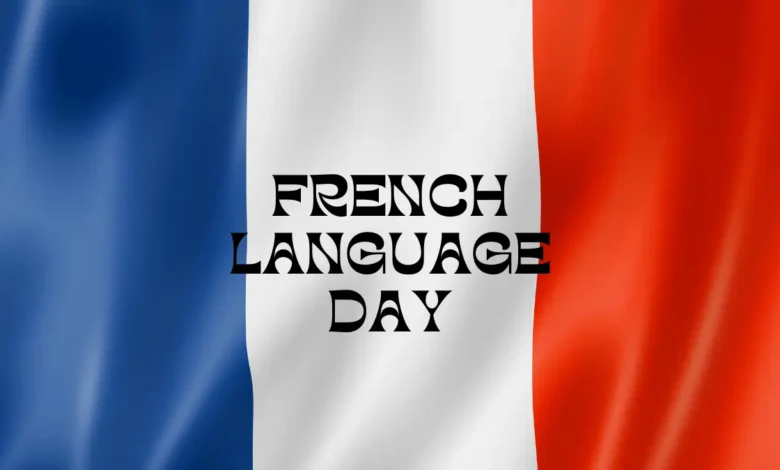French Language Day 2025: Celebrating Multilingualism, Education, Cultural Diversity and Empowering Children Through Language Learning

Introduction
On March 20, 2025, the United Nations (UN) will celebrate French Language Day, highlighting the importance of multilingualism, cultural diversity, and education. This annual observance serves as a reminder of the historical, diplomatic, and cultural significance of the French language worldwide.
For 2025, the International Organization of La Francophonie (OIF) has chosen the theme “I educate myself, therefore I act”, emphasizing education’s transformative power in achieving sustainable development and global peace. This theme highlights the critical role of education in shaping responsible global citizens, promoting equality, and fostering stability in an increasingly interconnected world.
As one of the six official languages of the United Nations, French plays a vital role in international diplomacy, cooperation, and cultural exchange.
The Origin and Significance of UN Language Days
In 2010, the United Nations introduced Language Days to promote multilingualism and cultural awareness. The UN recognizes six official languages, each of which has a dedicated celebration day:
- Arabic Language Day – December 18
- Chinese Language Day – April 20
- English Language Day – April 23
- French Language Day – March 20
- Russian Language Day – June 6
- Spanish Language Day – October 12
These observances encourage linguistic diversity and highlight the role of languages in fostering international dialogue, diplomacy, and cooperation.
Why is French Language Day Celebrated on March 20?
The choice of March 20 for French Language Day is not random. It marks the anniversary of the founding of the Agency for Cultural and Technical Cooperation (ACCT) in 1970, which later became the International Organization of La Francophonie (OIF). The OIF is a global organization dedicated to promoting the French language, cultural exchange, and development cooperation among its 88 member states and governments.
The French language is more than just a means of communication; it represents humanist values, cultural heritage, and shared ideals of peace and cooperation. This observance honors the historical and diplomatic importance of French, one of the most widely spoken and influential languages in the world.
The Role of Multilingualism in the United Nations
A Tool for Global Unity and Communication
Multilingualism is fundamental to the UN’s mission as it:
- Encourages tolerance and understanding between different nations and cultures.
- Ensures the active participation of all countries in international discussions.
- Fosters inclusivity and cooperation across diverse linguistic communities.
In a world increasingly marked by global challenges, the ability to communicate across languages and cultures has become more important than ever. The COVID-19 pandemic demonstrated the need for strong international communication, making language accessibility a critical factor in global solidarity and response efforts.
The UN recognizes French as a key language in international diplomacy, alongside English, and ensures its continued use in peacekeeping, policy-making, and legal affairs.
Why Should Children Learn French and Other Languages?
While English is widely spoken, languages like French, Spanish, Arabic, and Mandarin are equally important. French, in particular, is an essential global language, with more than 300 million speakers across five continents.
1. French as a Language of International Affairs
- French is one of the six official languages of the United Nations (UN) and is widely used in diplomacy, law, and international relations.
- It is the official language of numerous international organizations, including the European Union (EU), the African Union (AU), UNESCO, and the International Red Cross.
- Learning French allows children to participate in international discussions, humanitarian efforts, and policymaking.
2. French as an Economic and Business Language
- French-speaking countries make up a significant part of the global economy, with strong business hubs in France, Canada, Belgium, and parts of Africa.
- The Francophone world is expanding, especially in Africa, where French plays a key role in trade, education, and governance.
- Learning French gives children access to economic opportunities in diverse global markets.
3. Access to Higher Education and Research
- French is a major language of academia, philosophy, and science.
- Some of the world’s top universities, such as Sorbonne University (France), McGill University (Canada), and the Swiss Federal Institute of Technology (Switzerland), offer programs in French.
- Learning French opens pathways to prestigious scholarship programs and international research opportunities.
How Can We Empower Children to Learn New Languages?
While the benefits of multilingualism are clear, many children face challenges in accessing quality language education. To empower children, we must create a supportive and engaging learning environment.
1. Introduce Languages Early in Schools and Homes
- Studies show that children learn languages more easily at a young age.
- Schools should integrate multilingual education from early childhood to make language learning a natural process.
- Parents can introduce languages at home through storytelling, music, and interactive conversations.
2. Utilize Technology and Digital Learning Tools
- Language learning apps like Duolingo, Rosetta Stone, and Babbel make learning interactive and engaging for children.
- Online platforms provide access to native speakers, virtual language classes, and cultural exchange programs.
- Schools can leverage educational technology to enhance language immersion programs.
3. Encourage Cultural Exchange and Immersion
- Schools should organize language exchange programs where children interact with peers from different linguistic backgrounds.
- Traveling to French-speaking regions or participating in virtual cultural exchanges can deepen language understanding.
- Hosting Francophone cultural festivals, film screenings, and book clubs helps children appreciate the richness of other languages.
4. Train and Support Language Teachers
- Governments and institutions should invest in professional development for language educators.
- Schools should employ qualified teachers who use engaging and immersive teaching techniques.
- Public and private sectors must collaborate to expand access to multilingual education.
5. Promote Multilingual Policies and Language Rights
- Governments should integrate language learning policies into national education curriculums.
- Efforts should be made to preserve indigenous and minority languages, ensuring linguistic diversity is valued.
- Organizations like the United Nations and the International Organization of La Francophonie (OIF) should continue to advocate for global language learning initiatives.
Conclusion: Investing in Language Learning for a Brighter Future
Language is more than just words; it is a gateway to knowledge, culture, and opportunity. By empowering children to learn multiple languages, we are equipping them with the skills to thrive in an interconnected and dynamic world.
On French Language Day 2025, as we celebrate the theme “I educate myself, therefore I act,” let us reaffirm our commitment to multilingual education. We must ensure that every child, regardless of background, has the opportunity to learn new languages and expand their horizons. By investing in language learning, we are investing in a future generation of global citizens, leaders, and changemakers who can navigate the world with confidence, empathy, and cultural appreciation.





